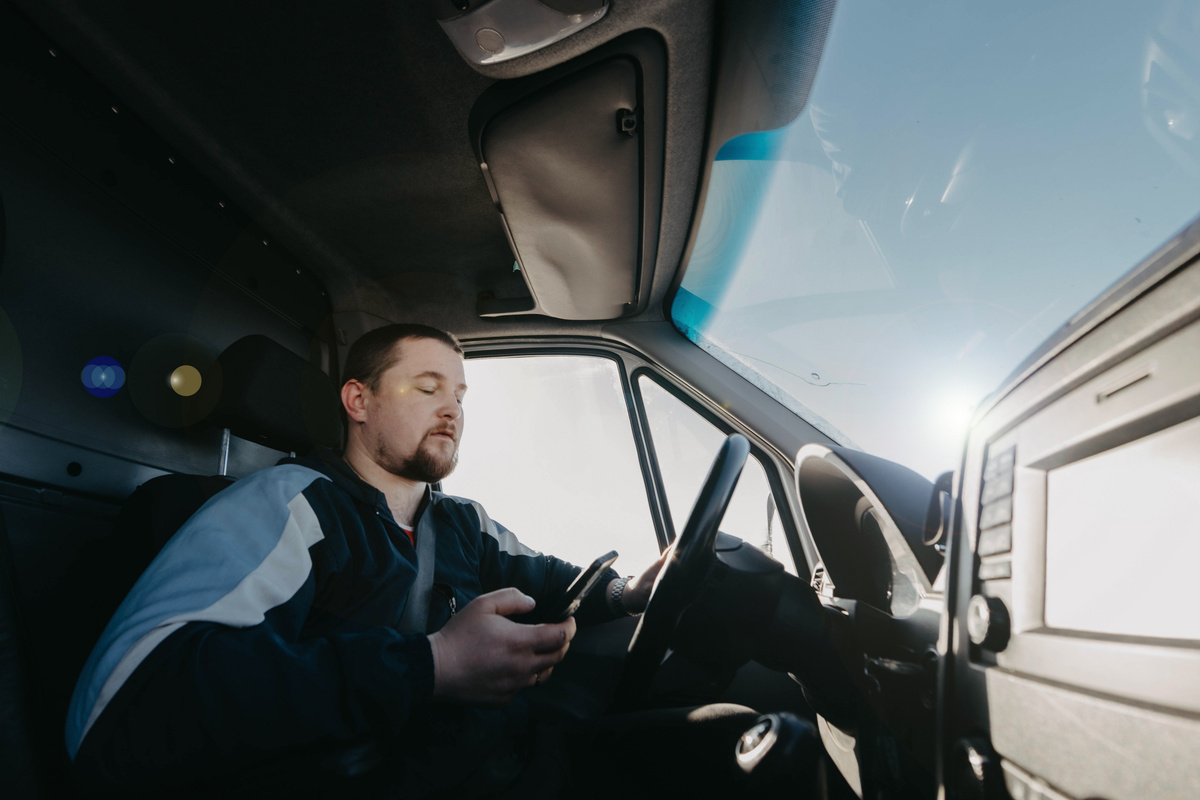
Distracted driving allegations in commercial trucking accidents present significant legal challenges for transportation companies and their insurers. When plaintiff attorneys claim a truck driver was texting, adjusting GPS, or otherwise distracted at the time of an accident, the potential for nuclear verdicts increases dramatically. These claims often trigger emotional responses from juries who view commercial drivers as having heightened responsibilities on the road.
At Fahl & Donaldson, our trucking defense attorneys understand the complexities of defending against distracted driving allegations. With decades of trial experience and a deep understanding of federal motor carrier regulations, we help trucking companies navigate these serious claims while protecting their business interests and reputation.
Understanding the Scope of Distracted Driving Allegations
Distracted driving claims in commercial trucking cases extend beyond simple cell phone use. Plaintiffs may allege drivers were eating, drinking, adjusting radio controls, reviewing paperwork, or engaging with dispatch systems. Each type of distraction requires different defensive strategies and evidence preservation approaches.
Federal Motor Carrier Safety Administration (FMCSA) regulations specifically prohibit texting and handheld phone use for commercial drivers. Violations of these regulations can create presumptions of negligence that defense counsel must overcome. Understanding the nuances of these regulations and their exceptions becomes critical when mounting an effective defense.
Electronic Logging Device (ELD) data often becomes central to these cases. While ELDs primarily track hours of service, they also record vehicle movement patterns that plaintiffs may interpret as evidence of distraction. Defense attorneys must understand how to properly analyze and contextualize this data to counter unfounded allegations.
Immediate Response and Evidence Preservation
The first 24 to 48 hours following an accident involving distracted driving allegations are crucial for building a strong defense. Trucking companies should immediately preserve all electronic data, including:
- Cell phone records from the driver and company
- GPS and telematics data
- Dashboard camera footage
- ELD records
- Dispatch communications
- Satellite tracking information
- Driver logs and supporting documents
Beyond electronic evidence, physical evidence from the accident scene requires careful documentation. Skid marks, debris patterns, and vehicle damage can help reconstruct the accident and potentially contradict distraction claims. Weather conditions, road construction, and visibility factors at the time of the accident may provide alternative explanations for the incident.
Working with accident reconstruction experts early in the case allows defense teams to develop alternative theories of causation. These experts can analyze physical evidence, review electronic data, and provide scientific analysis that challenges the plaintiff’s version of events. Their testimony often proves invaluable in demonstrating that factors other than driver distraction caused or contributed to the accident.
Strategic Defense Approaches
Successfully defending distracted driving claims requires a multi-faceted approach that addresses both legal and factual issues. Defense attorneys must carefully evaluate whether the alleged distraction, even if it occurred, actually caused the accident. Proving causation requires plaintiffs to show that the distraction directly led to the collision, not merely that it existed.
Comparative negligence often plays a crucial role in trucking defense cases. Even when some level of distraction exists, demonstrating the plaintiff’s own negligence can significantly reduce or eliminate liability. This might include speeding, following too closely, improper lane changes, or their own distracted driving. Texas law allows for proportionate responsibility assessments that can dramatically impact damage awards.
Expert testimony becomes essential in challenging plaintiff interpretations of electronic data. Cell phone forensics experts can analyze usage patterns and timing to dispute claims of active phone use. Similarly, human factors experts can testify about reaction times, perception-response intervals, and the actual impact of alleged distractions on driving performance. These experts help juries understand the scientific realities behind distracted driving claims rather than relying on assumptions or emotions.
Building a Comprehensive Defense Strategy
Developing an effective defense against distracted driving allegations requires coordination between the trucking company, insurance carriers, and legal counsel. Companies should maintain robust safety programs that include regular training on distraction avoidance, clear policies on device usage, and documented enforcement procedures. These proactive measures demonstrate the company’s commitment to safety and can undermine claims of systemic negligence.
Driver history and training records become powerful defense tools when properly maintained and presented. A driver’s clean safety record, completion of defensive driving courses, and adherence to company policies can humanize the defendant and counter negative stereotypes about truck drivers. Additionally, evidence of the driver’s familiarity with the route and experience handling similar conditions can refute claims that distraction was necessary for the accident to occur.
Technology solutions increasingly aid in defending these cases. Forward-facing and driver-facing cameras can definitively show driver behavior at crucial moments. Hands-free communication systems and safety technology like collision mitigation systems demonstrate the company’s investment in preventing accidents. When these technologies are present and properly utilized, they provide objective evidence that can contradict subjective allegations of distraction.
Partner with Fahl & Donaldson for Your Trucking Defense Needs
When your trucking company faces distracted driving allegations, you need attorneys who understand both the legal complexities and the transportation industry’s operational realities. Fahl & Donaldson brings over 100 years of combined litigation experience to every case, with a proven track record of favorable verdicts and settlements in trucking defense matters. Our attorneys have successfully defended numerous trucking companies against distracted driving claims, nuclear verdict threats, and complex liability scenarios.
We recognize that each case requires a tailored approach based on specific facts, available evidence, and jurisdictional considerations. Our team works closely with accident reconstruction experts, technology specialists, and industry professionals to build comprehensive defenses that protect your interests. If your company needs experienced trucking defense representation, contact our office to discuss your case.

